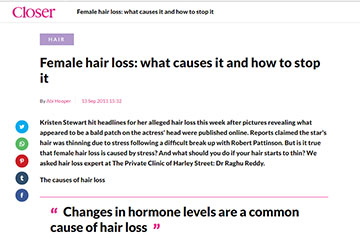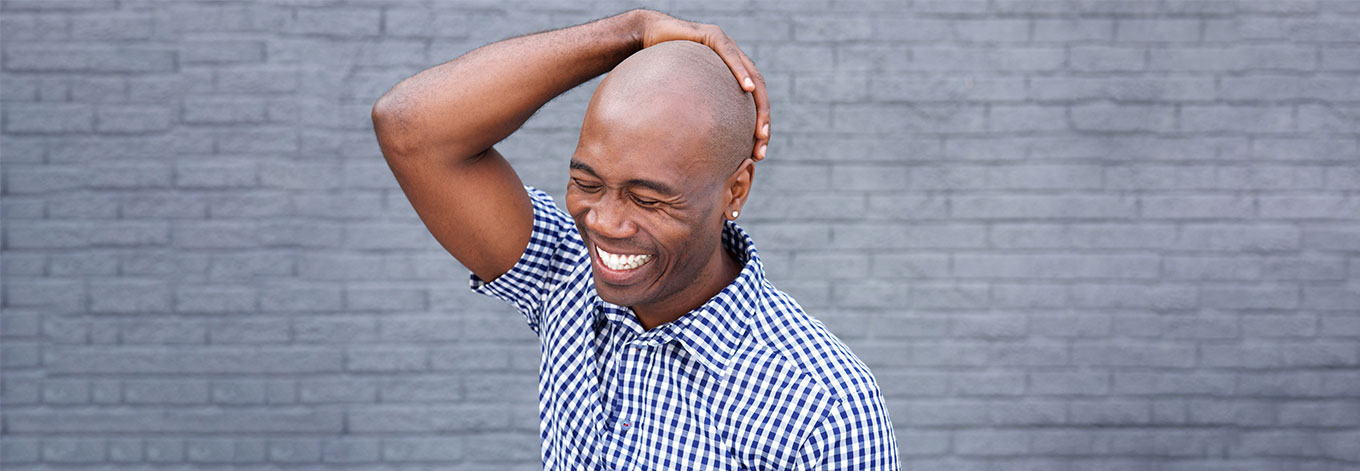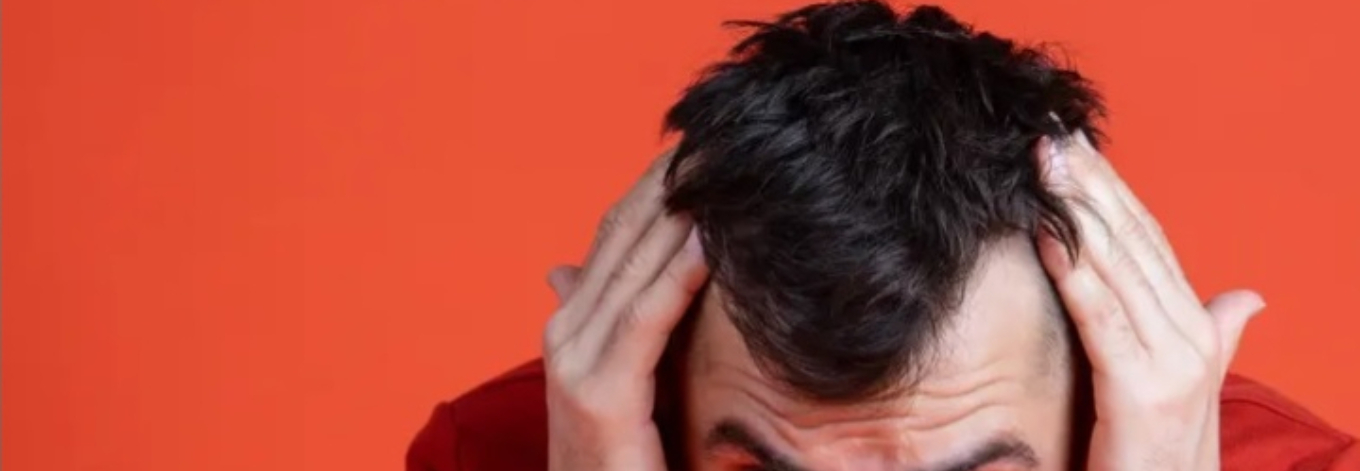
Hair Loss – What causes it and how to stop it!
HAIR LOSS
Closer Magazine
Kristen Stewart hit headlines for her alleged hair loss this week after pictures revealing what appeared to be a bald patch on the actress’ head were published online. Reports claimed the star’s hair was thinning due to stress following a difficult break up with Robert Pattinson. But is it true that female hair loss is caused by stress? And what should you do if your hair starts to thin? We asked hair loss expert at The Private Clinic of Harley Street: Dr Raghu Reddy.
Causes of hair loss
Genetics has an important part to play in hair loss. Women can both inherit genes from the paternal and maternal side, which make them more susceptible to hair loss.
Changes in hormone levels are also a common cause. If you are post-menopausal then it is not uncommon for your hair to thin. Women with higher levels of testosterone are also more likely to succumb to male patterned baldness.
Unlike in men, hair loss in women is mostly caused by an underlying medical condition. If you are able to get to the cause of the problem, then it is likely that the hair loss you experience will reduce or even stop altogether. Underactive Thyroid, anaemia, hormonal disorders including oestrogen, polycystic ovaries or even lupus are all conditions that can cause hair loss. If you are diagnosed with one of these conditions you can see medical help from your GP and more often than not, hair loss can be reversed.
The effect of stress on hair loss
Stress can cause hair loss in different ways; in particular it can lead to the buildup of acid-free radicals, something which contributes to thinning of the hair.
Prolonged periods of stress can also lead to a change in hormonal balances. Over time this can pave the way for hair thinning or patterned baldness and is something that many women in highly stressful professionals commonly suffer with.
We have also seen many celebrities who have publicly battled with a condition called Trichotillomania (pulling of hair). Again this is something which is commonly linked with stress and involves the person pulling the hair on their head or even their eyelashes or eyebrows on a regular basis.
How to combat hair loss
Your hair is made up of keratin, which is a natural protein. Making sure your diet is high in protein will therefore help to keep your hair strong and healthy. Make a special effort to eat dishes which include eggs, fish and lean meat and over time you may see an improvement.
It is also possible to increase hair density. There are a number of supplements available which can claim to prevent or reduce hair loss but there is little evidence to suggest that these are effective. Topical Minoxidil (sold as Regaine) is perhaps the only clinically proven product to safely and effectively reduce hair loss in certain cases. There is a special formula specifically designed for women, too, although it’s important to seek the advice of your GP or hair loss specialist before using any form of product like this.
What many women aren’t aware of it that a hair transplant is actually a possibility for them too, as well as for men. If you have ruled out any underlying medical conditions and you continue to experience hair loss, you may be suitable for a transplant. A 3G FUE (Follicular Unit Extraction), performed under local anaesthetic, is a walk-in, walk-out procedure which can offer a solution to hair loss for women. The process involves removing hairs individually from the back of the head, and moving it to the area that has been most effected by hair loss. This treatment has been around for over ten years and is a proven technique for women, as well as men.








